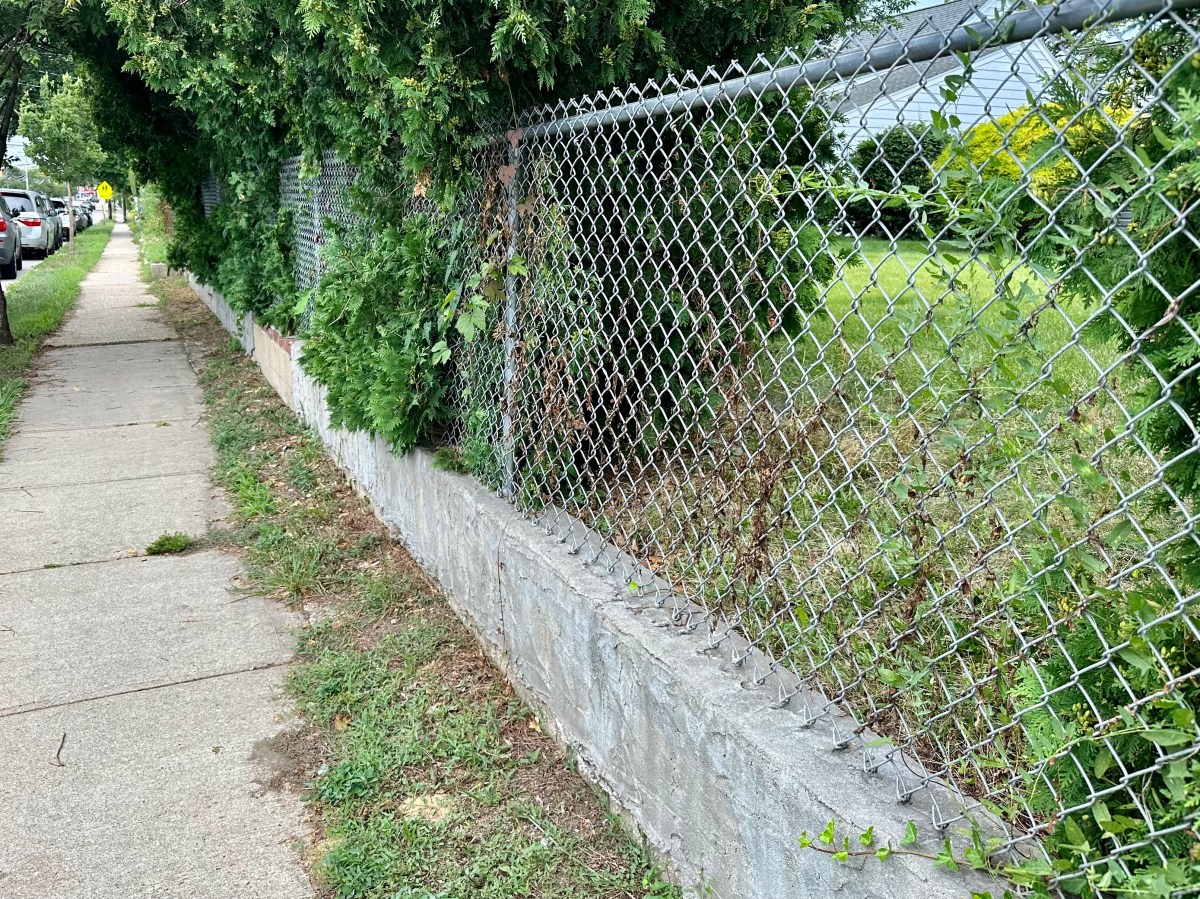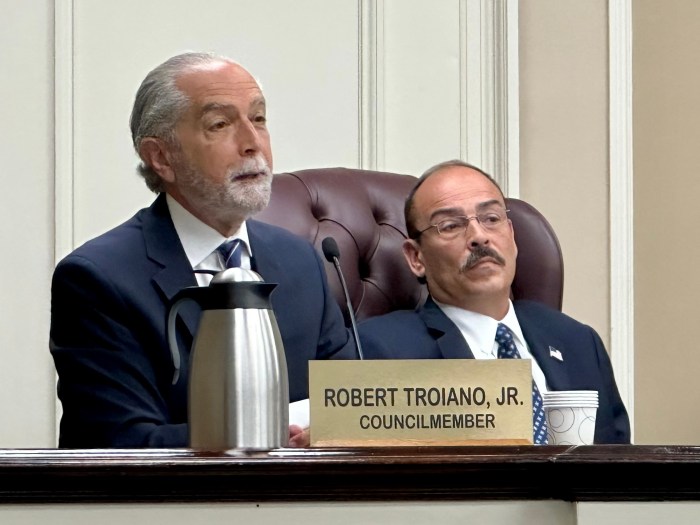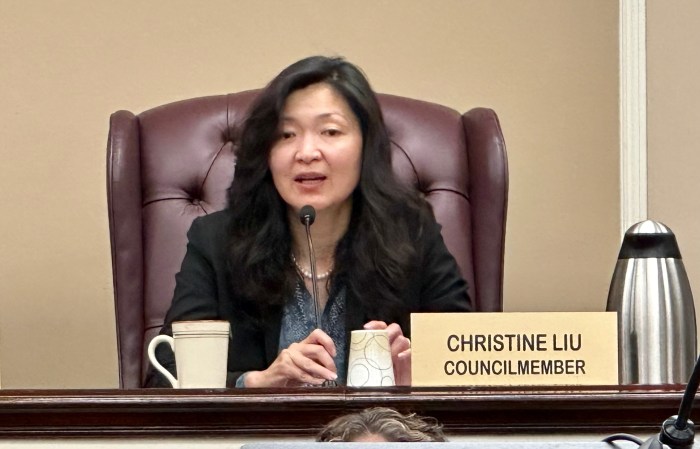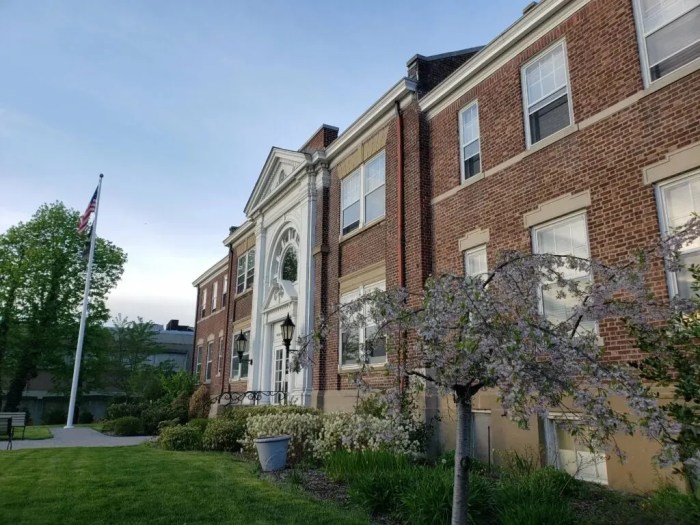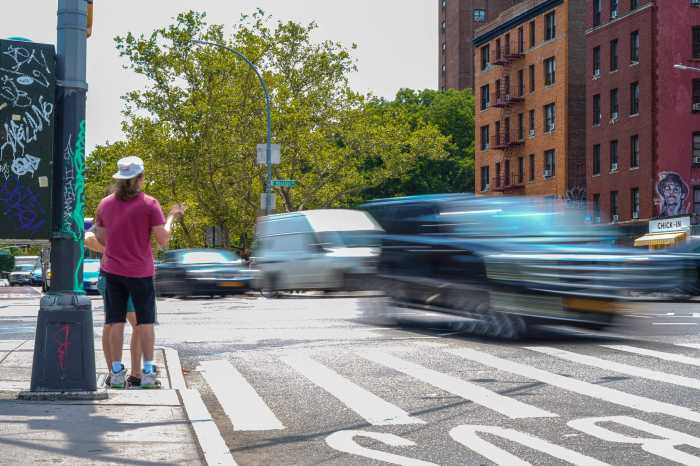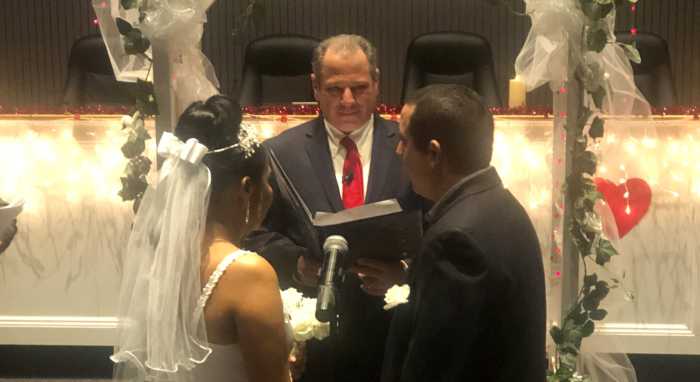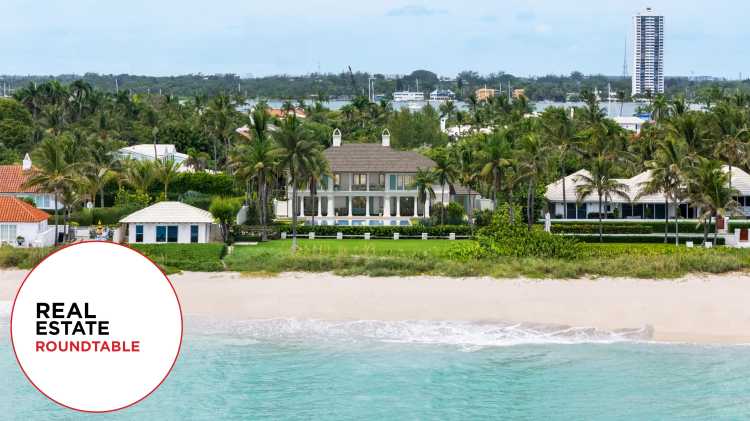The North Hempstead Town Board was at odds over a law change to increase fence heights in the town, which ultimately failed to pass despite resident advocacy.
The board voted 2 to 5 on the law change, with only Town Council Members Ed Scott and David Adhami voting in favor of the change.
The law was proposed by Scott, who was questioned whether or not his home’s fence complies with town law and how the proposed law would have benefited him.
Scott, who lives along I U Willets Road, defended himself, saying that he proposed the law change after communicating with civic associations in his district.
He said he has a living fence on the front half of his side yard along I. U. Willets Road. The remainder of the side yard and the rear of his property are fenced in. His fences sit atop a berm, but he said they are five feet tall.
The law would have changed the maximum fence height to six feet for residential backyards, and permitted a maximum eight-foot fence for backyards abutting industrial zones.
Currently, six-foot fences are only permitted for homes with pools and all others are capped at five feet. Living fences, or a natural tree barrier, do not have height maximums.
Fence heights are measured from the grade of the landscape it adjoins, not on the pre-existing grade of the property. The height includes any base upon which it is built, except a berm or dirt retaining wall.
Residents argued that making all fence height maximums at 6 feet would be equitable across the town.
“I don’t really understand the reasoning,” said Alina Uzilova, president of the Roslyn Country Club Civic Association. “It’s really more about quality of life. Shouldn’t the people who live next to main roads and have that noise and have that pollution, shouldn’t they have a better quality of life too?”
Those who advocated for the law to be passed said taller fences would grant them more security and diminish noise volumes for those living along busy roads.
Opposition to the law centered around what was called the negative visual impact of taller fences along public roads.
Town Council Member Dennis Walsh called the proposed law “an overreach by elected officials.” He said taller fences are unsightly and dangerous.
Board members who voted against the bill said that residents seeking a greater fence height than permitted under the code can seek a variance through the Board of Zoning and Appeals.
“I know that the BZA was formed throughout the country to allow residents to apply for exceptions to the code if they feel their situation has some extenuating circumstances. That’s what BZAs are for,” Town Council Member Robert Troiano said. “The town is meant to provide rules for the unincorporated area, general rules.”
Troiano asked Scott how the legislation would impact him and his neighbors. Scott said it would alleviate the burden of seeking a variance from the zoning board.
Adhami called the BZA route an ‘undue burden” in many cases.
“There’s a given number of solutions for any problem,” Adhami said. “It doesn’t have to be one size fits all, and things can be adjusted.”
Deputy Building Commissioner Stephen Haramis said there are many illegal fences in the town, but they often go unenforced.
Haramis said summons are not commonly handed out for fence violations, citing a lack of time to enforce them. He said they are typically not enforced unless someone reports them to the town.
A previous version of the law also proposed eight-foot fences for homes along public roads, but Scott said this was omitted due to opposition from town board members. He said he agreed with them to avoid creating a “giant wall” along public roads.
“I think with everything that’s going on today, people feel safe with these fences, but I also want to keep it so we don’t look like Queens East,” Scott said.
Scott said he would continue to seek law changes to permit taller fences along public roads and find compromises, such as a requirement to put greenery up to mask the fence.




